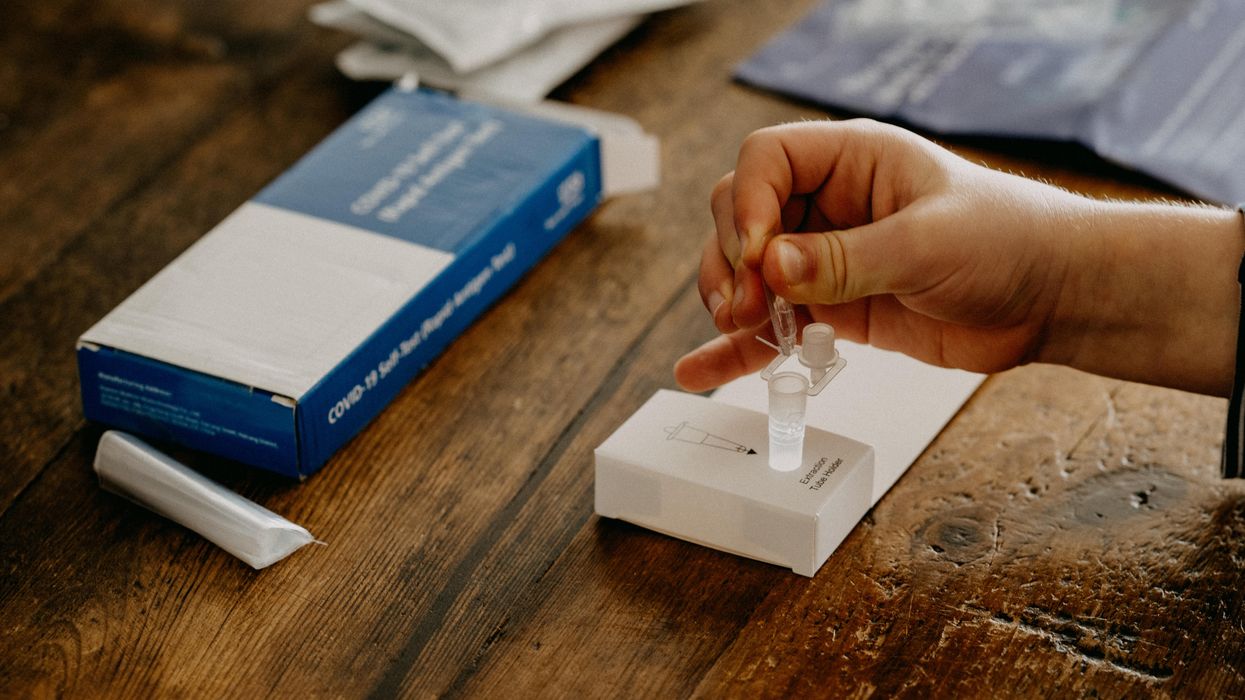Health Canada Is Warning About Rapid Tests After An Increase In Reports To Poison Control
The kits are safe to use but the liquid solution could be dangerous if misused.
A new alert from Health Canada for COVID-19 rapid tests has been issued because of the potential exposure to hazardous substances and risks associated with misusing the solution that comes with the kits.
On February 24, an alert was put out by Health Canada for COVID-19 rapid antigen test kits after an increase in reports to poison control centres.
This alert is meant to advise Canadians about the potential risks associated with the misuse, accidental ingestion or spillage of test kit solutions on the skin and has been issued "on a precautionary basis" to help reduce risks.
The health agency knows of about 50 calls made to poison control centres in Canada related to accidental exposure which have resulted in minor health issues.
The test kits have been deemed safe and effective when used as intended but many test kits include liquid solutions with chemical preservatives, including sodium azide and ProClin, that could be poisonous if swallowed or absorbed through the skin, particularly in children and pets.
Small doses of sodium azide can lower blood pressure while larger doses can cause more serious health effects.
ProClin contains chemicals that can cause skin and eye irritation as well as allergic reactions.
Accidental ingestion or skin exposure to very small quantities of the liquid solutions isn't expected to cause the serious effects that would happen with larger doses but even small quantities could cause effects in small children and pets.
"While these kits are safe, effective, and beneficial for self-testing, the product labelling and instructions may not describe or disclose the risks associated with misuse or accidental ingestion," Health Canada said.
Canadians are being told to keep rapid antigen test kits and solutions out of the reach of children and pets, to not swallow the solutions and to avoid eye and skin contact.
It's important for people to wash their hands thoroughly after use and to rinse well with water if there's spillage.
In cases of accidental ingestion of chemicals or direct skin exposure, they should contact a local poison control centre to be safe.
This article's cover image was used for illustrative purposes only.
